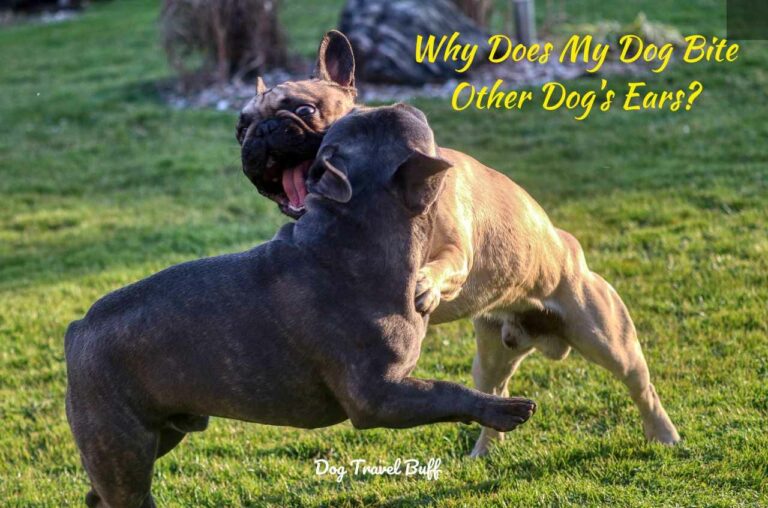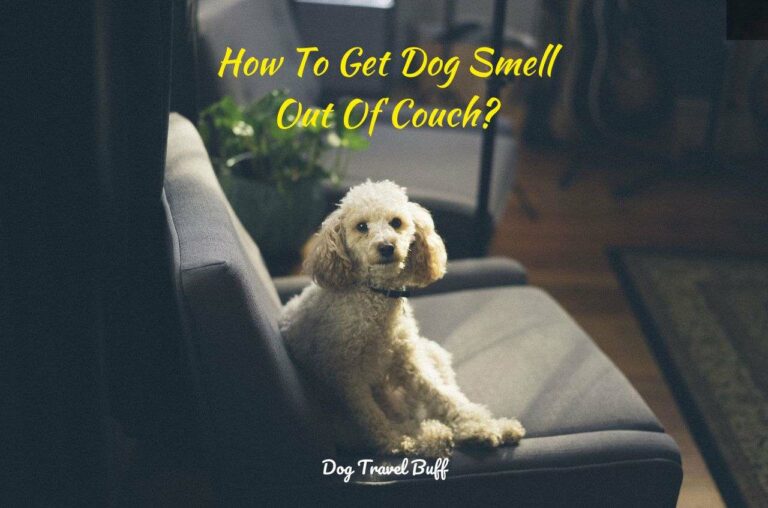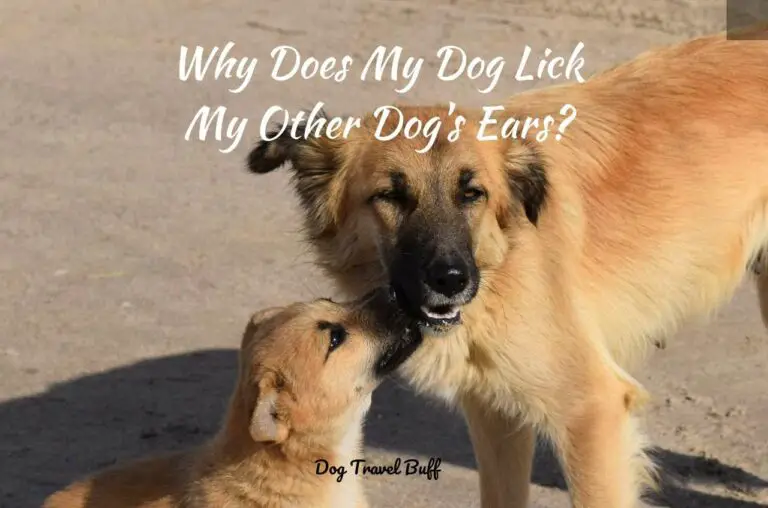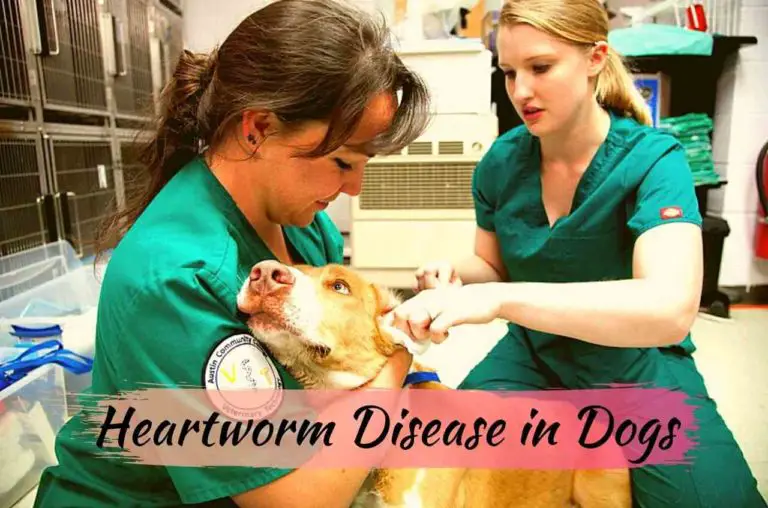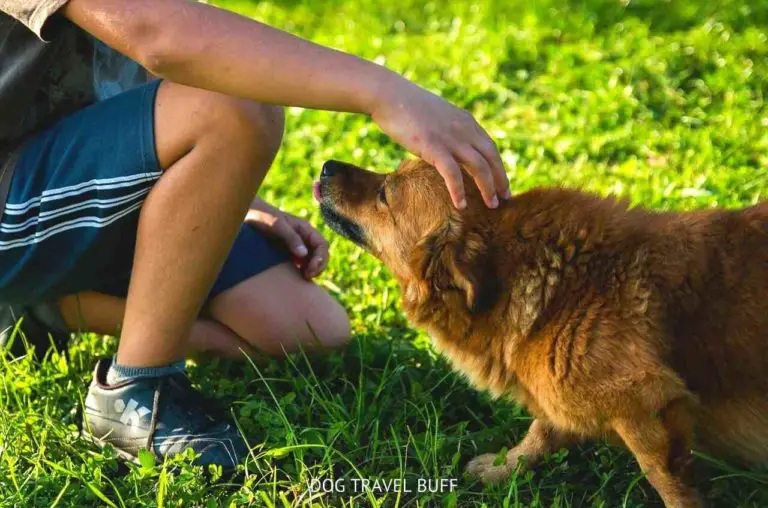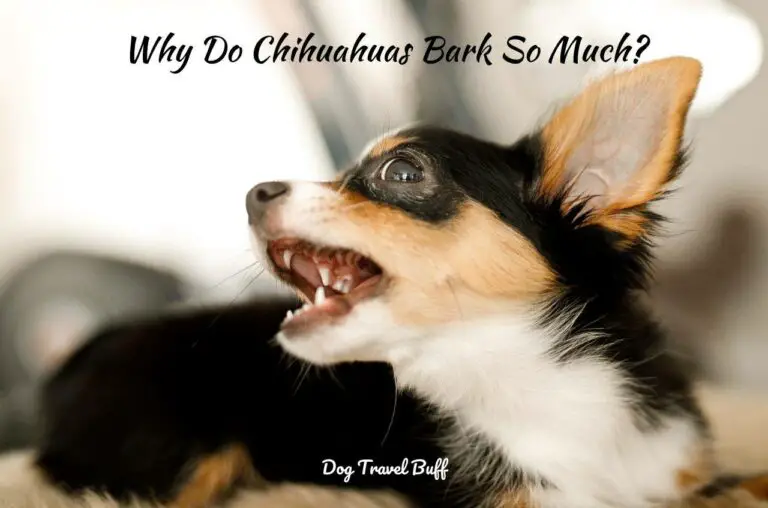22 Reasons Why Is My Senior Dog Panting At Night Excessively
You must have seen your senior dog panting out of the blue at night. Sometimes it goes repetitively. You might have wondered why your old dog is panting at night! Right? So did we. We have seen our furry pal gasping at night, which was not his typical behavior. Have you ever thought about why your senior dog pant at night?
We searched on the internet and consulted with our veterinarian regarding this. Many websites say that panting dogs at night may be expected. But when we talked with the veterinarian about this matter, she said something unknown to us. So we thought of sharing that information with you guys. Read this article carefully if you have a furry pal and notice this behavior.
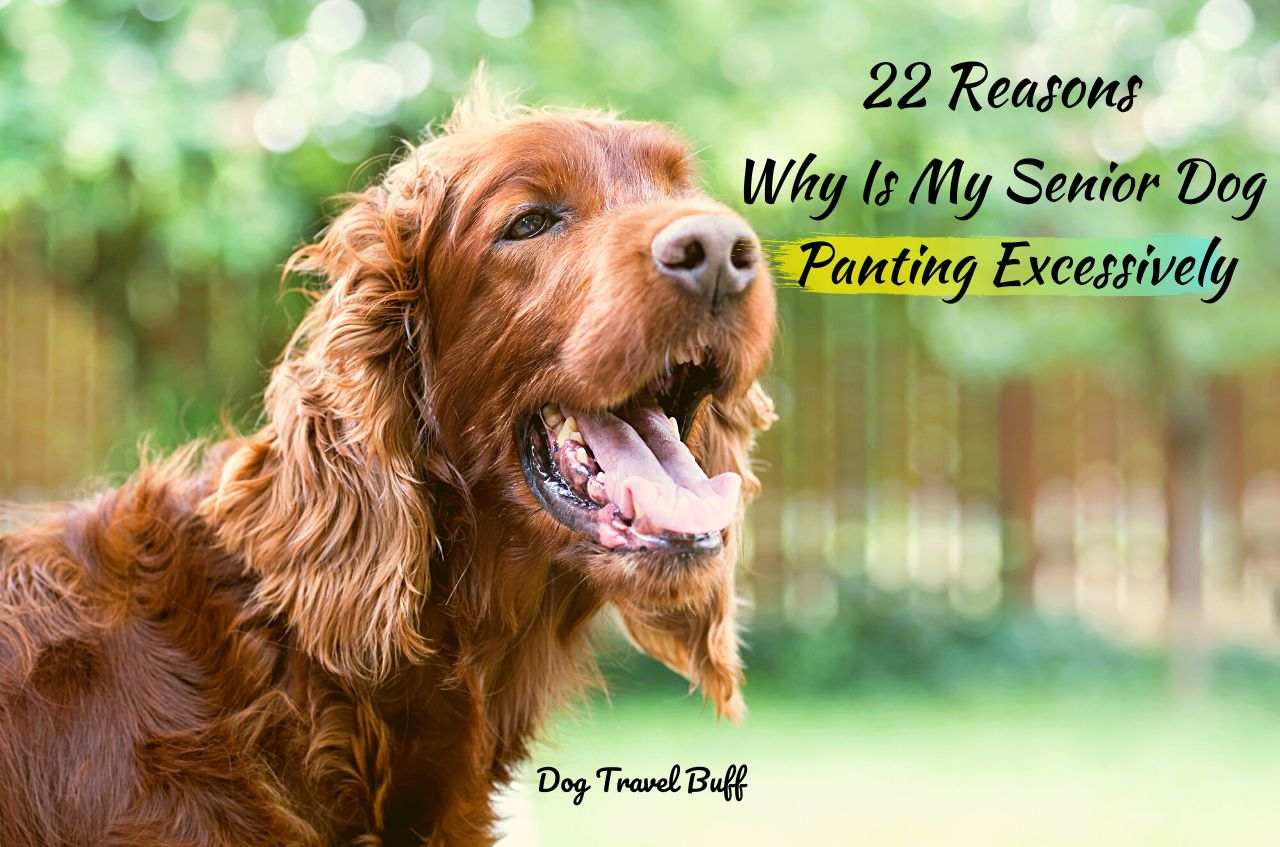
This post may contain affiliate links. If you buy something through one of those links, you won’t pay any extra penny, but I’ll get a small commission that encourages me to deliver more helpful content for you.
According to our veterinarian, there are reasons that your dog pants at night. Like your dog trying to release excessive heat from its body, your furry pal becomes old at that time its pants excessively, which is common in aging dogs.
Why Is My Senior Dog Panting Excessively?
Types and symptoms:
Excessive panting is characterized by loud, open-mouth breathing, frequently with the tongue protruding. The breathing is shallower and faster than usual.
Your dog’s gums may shift from a healthy pink to a pale or even blue tint if they have trouble transferring adequate oxygen throughout their body.
Here are some specific reasons behind your dog panting at night.
Internal Diseases:
As your furry friend gets older, it develops many health issues. Due to health problems, your dog may pant at night. Diseases like osteoarthritis, liver problem, bone weakness, and digestive issues can make your dog pant at night.
Wounds:
If your furry pal has any wound due to an injury, your dog may also pant out of pain. Sometimes outer wounds are visible but internal wounds may cause panting.
Restlessness:
When your dog pants often and repetitively, it may cause excessive tiredness. Your dog plays throughout the day and loses its energy; at night, it gets exhausted and pants a lot.
Breathing Problem:
This particular problem you will see in aging dogs. When dogs get older at that time, they face a lot of respiratory problems. They often gasp due to a lack of oxygen also.
Due to excessive heat:
Sometimes you might have seen your dog gasping and panting vigorously. When you see a senior dog panting and drinking a lot of water, your dog may be excessively thirsty. In summer, heat makes your dog feel dehydrated and tired. Your furry friend often pants when it tries to remove excessive heat from itself.
Loss of bladder:
When your dog gets old, it loses control over its bladder. When we are there next to our dogs, it’s easy to understand by seeing their activity and whether they want to poo or not. At that time, we take them to the restroom.
But when we are not there next to them, they urinate or poo at that place. As a result, they feel uncomfortable within a few minutes and start growling and panting.
If your dog faces this problem regularly, you should not waste time. Consult a veterinarian as soon as possible.
Losing sense:
It is widespread with aging dogs. When dogs get older, they lose their sense. They can’t remember everything. We are next to them during the day, but they might act weird due to a lack of light at night and start panting.
Metabolic discomfort:
There are many reasons behind your dog pants at night, and one of the main reasons is metabolic discomfort. Diseases like diabetes, heartworm, liver issues, and Cushing’s disease; make your dog pants at night.
Genetic Problems:
Some dog breeds have genetic issues like respiratory, weakness, and arthritis. They may not face these issues at a young age, but when they grow older, they start facing this problem and growling and panting.
Sleeping Disorder:
If you’re a dog owner, you might have noticed that sometimes your dogs pant in sleeping. Panting happens to aged dogs. When your furry pooch gets tired and falls asleep at that time, it unconsciously gasps.
In some cases, it may not only be a sleeping disorder. Maybe your dog is going through some emergencies you cannot detect. In this case, we suggest you consult your veterinarian as soon as possible.
Dogs with short heads:
Compared to male dogs, female dogs’ heads are more petite. Brachycephalic syndrome is a disease that causes your dog’s breathing problems. Mostly, You will see this problem in female dogs as their heads are smaller than the male dogs.
We have a female dog, and it used to pant at night. When we noticed it, we took it to the veterinarian. From the doctor, we got to know about this. So, consult your veterinarian if you see your female dog pants at night or something unusual.
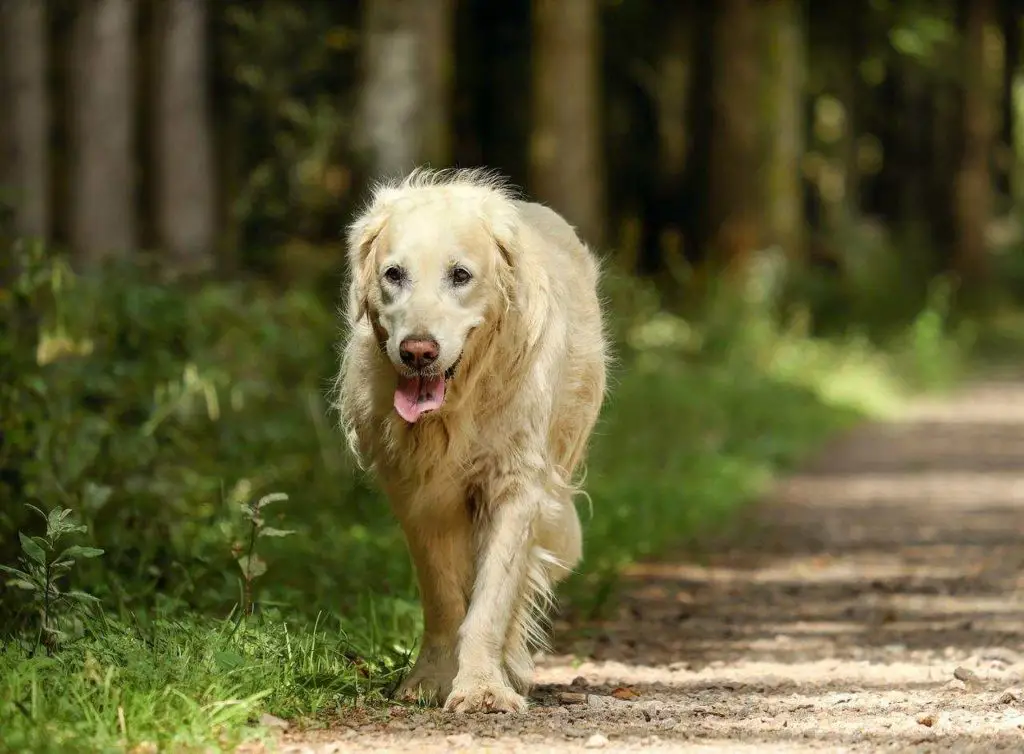
Anxiety:
Anxiety can be a reason your old dog pants at night. You will see most of the aged dogs get easily irritated and remain grumpy all the time, regardless of their health issues. You will see, without any reason, that senior dogs start panting at night. It is nothing but their behavioral changes with time and age.
Unknown Sounds:
Dogs are way more intelligent and agile than human beings. They can listen to shallow sounds from a long distance. At night when everything remains silent, if you old dogs hear anything suspicious, they start growling and panting.
One of our friends who have dogs faced this issue; their dog also used to pant at night. So they called us to talk about this; later, we made him understand that it is pretty standard that your dog may start growling at night or panting at night. If something goes on continuously, he can talk to the veterinarian. One week later, we spoke again, and he said his dog stopped panting at night.
Loneliness:
Loneliness makes your dog anxious. At night your dog remains alone. At that time, it is drained and, out of weakness, starts panting.
Smelling sense:
You know very well that your dog’s sense is way stronger than yours. So if your pet smells something stinky, It starts panting.
For example, if something is burning before you, your dog gets that smell and starts barking. You might have noticed your dog panting while you are cooking. The panting issue is simply because of your dog’s strong smell sense.
Fear of noise:
Noise is something that can trigger panting issues in your dog. At night you left your dog at its place all alone. It starts barking and panting again and again if it hears any weird or unknown sound. You will notice that your senior dog is panting and drooling when it gets a pressure cooker whistle. Dogs fear this sound, so they start barking out of fear.
Changing location:
It has been seen dogs behave weirdly and pants a lot while they are taken away from their place. If you change the location, your dog might take some time to be comfortable with the situation and the atmosphere. Due to relocation, your dog may pant too.
Anemia:
One of the main reasons your dog is panting at night is Anaemia, as you know what Anaemia is. In this condition, your body cannot produce red blood as required. As a result, we start losing focus, becoming irritated, and weak too.
The same thing happens with your furry pal, also. When your dog faces Anaemia, its heart beats faster than the average rate, which is why your dog’s behavior is weird. In aged dogs, you will see panting behavior more. Senior dogs have respiratory issues, heart issues, and many other diseases too, and because of these, they pants.
Read Also: 7 Reasons Why Do Dogs Pant In The Car
Age:
A lot of senior dogs pant at night for multiple reasons. Health conditions like Anaemia, diabetes and Cushing’s diseases can make your dog pant at night. Mainly aged dogs suffer from this kind of health issue.
These diseases don’t let your dog sleep appropriately, causing them to gasp at night. Due to less sleep, your furry pal gets tired and becomes anxious. Due to anxiety, your senior dog may pants at night.
You will see your senior dogs remain lethargic all the time. During this age, panting problems happen to your dog. Due to the weak muscles, they feel less energetic, they do not want to move, and start panting at night. Changing lifestyle can be one of the reasons you dog pants at night.
Heart Disease:
If your elderly dog has gone through heart disease or has some heart problems, you might find him panting at night. There must be heart problems when you see your dog breathing rapidly and panting.
So without wasting time, we suggest you take your elderly dog to the doctor. as your dog ages, its immune system becomes vulnerable. During this age, senior dogs get affected by heartworm disease, so keep an eye on that.
Obesity:
Similar to humans, obesity in dogs can result in a variety of health issues, including deeper breathing during panting. Obese dogs frequently get arthritis, cardiac problems, and joint issues. Being overweight makes your dog pant excessively since it takes more effort and energy to do daily tasks, raising their heart rate.
It’s essential to provide your dog with well-balanced food and daily exercise. Many pet owners don’t know how much their pets should weigh, but you can usually tell if your pet has put on a little weight. If you’re unsure how much your furry friend should consider, you can speak with a veterinarian to help you determine the best diet for them and support weight loss or maintenance.
Internal injury and pain:
When a dog is in pain, his heart rate increases, making him breathe faster and harder and pant more at night. An injured paw from jumping off the sofa can be an exterior concern, as can interior difficulties like a disease or illness. As soon as you become aware of your dog’s pain, consult a veterinarian immediately.
For instance, if your dog is panting and limping, it would need to get to the emergency vet since it might have a sprain or fractured bone. Unfortunately, not all wounds are apparent, but whether they are or not, your dog may still be in pain.
Panting and yelping, shying away when you try to touch them in a particular region, or reluctance to move are all clear signs your dog is in pain.
How to calm senior panting dog at night
Old dog panting at night can be concerning and may indicate various health issues. It is essential to monitor their panting patterns, especially if an old dog walks and poops more frequently than usual, as it could be a sign of discomfort or a potential underlying medical condition that requires veterinary attention.
You can stop your dog from panting at night if you know why they do it. For instance, your veterinarian may recommend allergy medicine if your dog suffers from allergies. In contrast, if your pet suffers from anxiety, it may benefit from behavioral therapy or medication designed to help them relax.
If your puppy is panting because they are hot, you can give them a cold drink or an ice cube, turn on the air conditioning for a while, or use a wet cloth to cool them off.
Make a relaxing atmosphere:
Create a tranquil environment purposefully to lessen stress and anxiety. Senior dogs’ demands change as they age, so you must adapt to make them as relaxed and happy as possible. Give your elderly dog a secure place to withdraw if your dog tends to get anxious or stressed out.
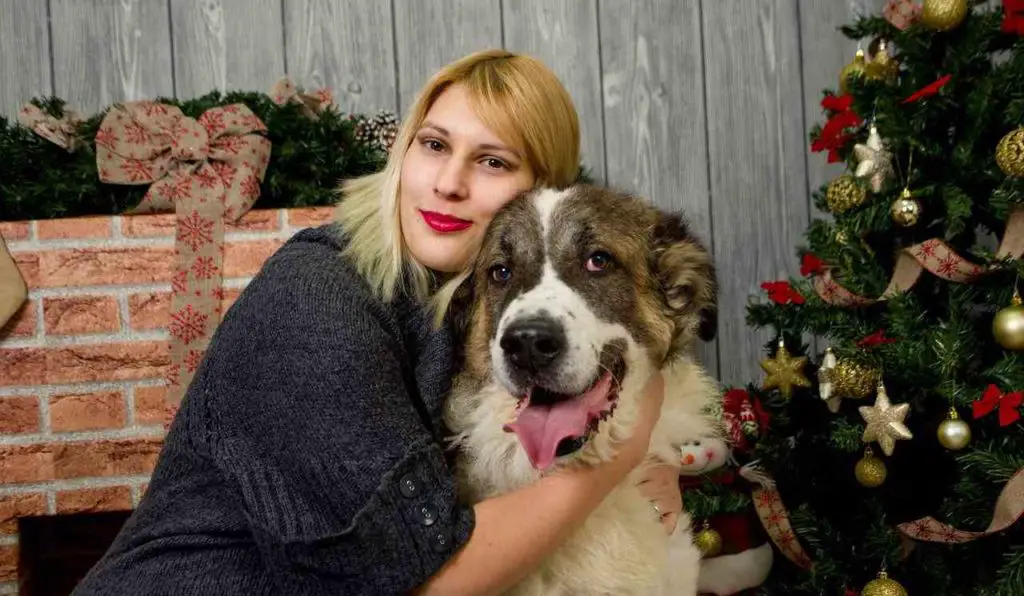
Keep your dog from overheating:
Dogs typically pant to stay calm. Make sure your dog isn’t overheating, and relocate its bed to a more relaxed area if your pet is anxious at night. Giving your elderly dog an ice cube with their preferred reward inside, a damp towel to rest on, and access to cool water will help lower the risk of heatstroke even further.
Exercising regularly:
Regular exercise is an excellent method to stop panting from stress, worry, and unresolved anger. Give your old friend more playtime, long walks, and other dog toys to help him burn off all that excess energy.
Pay special attention to offering enough cerebral stimulation in addition to physical exercise. You can provide this activity by letting him sniff and explore while you’re out walking, purchasing some puzzle toys, or teaching him new tasks.
Although senior dog panting at night is considered normal, it can sometimes be dangerous. You don’t know what the exact cause of why your dog is panting is. It is suggested to take precautions always.
If you see your senior dog panting at night or gasping rapidly for a few days, take it to the veterinarian as soon as possible. Your veterinarian will be the right one to suggest the best thing.
So being pet lovers, we know how much you worry about your pal, so take care of it, take your dog on a regular check-up, monitor its behavioral changes, and take steps accordingly.
Read Next:
- 13 Reasons Why Is My Dog Panting At Night
- 11 Proven Ways to Calm an Excited Dog in The Car
- How to Calm a Male Dog when a Female is in Heat
- Why Does My Dog Hump His Bed After Eating?
FAQ: Senior Dog Panting at Night
1. How will you know if your dog is panting too much?
A: Excessive panting is characterized by loud, open-mouth breathing, frequently with the tongue protruding.
2. Why is my dog breathing heavily at night?
A: Respiratory distress could be a reason for your dog to breathe so hard at night. You should not be worried if it is just a response to what your puppy is dreaming about.
3. Do dogs pant more when they become older?
A: For several reasons, older dogs typically pant more than younger canines. With age, a dog’s intercostal and diaphragm muscles weaken, which affects how well they can breathe. Because it involves less energy from these weak muscles, older dogs may find it easier to breathe quickly or pant.
4. When should I worry about my dog’s excessive panting?
A: Heavy panting is one indication that your dog has been injured. Pets may also exhibit other symptoms of pain or trauma, such as dilated pupils, decreased appetite, aversion to lying down, restlessness, anxiety, and licking or biting at the painful area.
